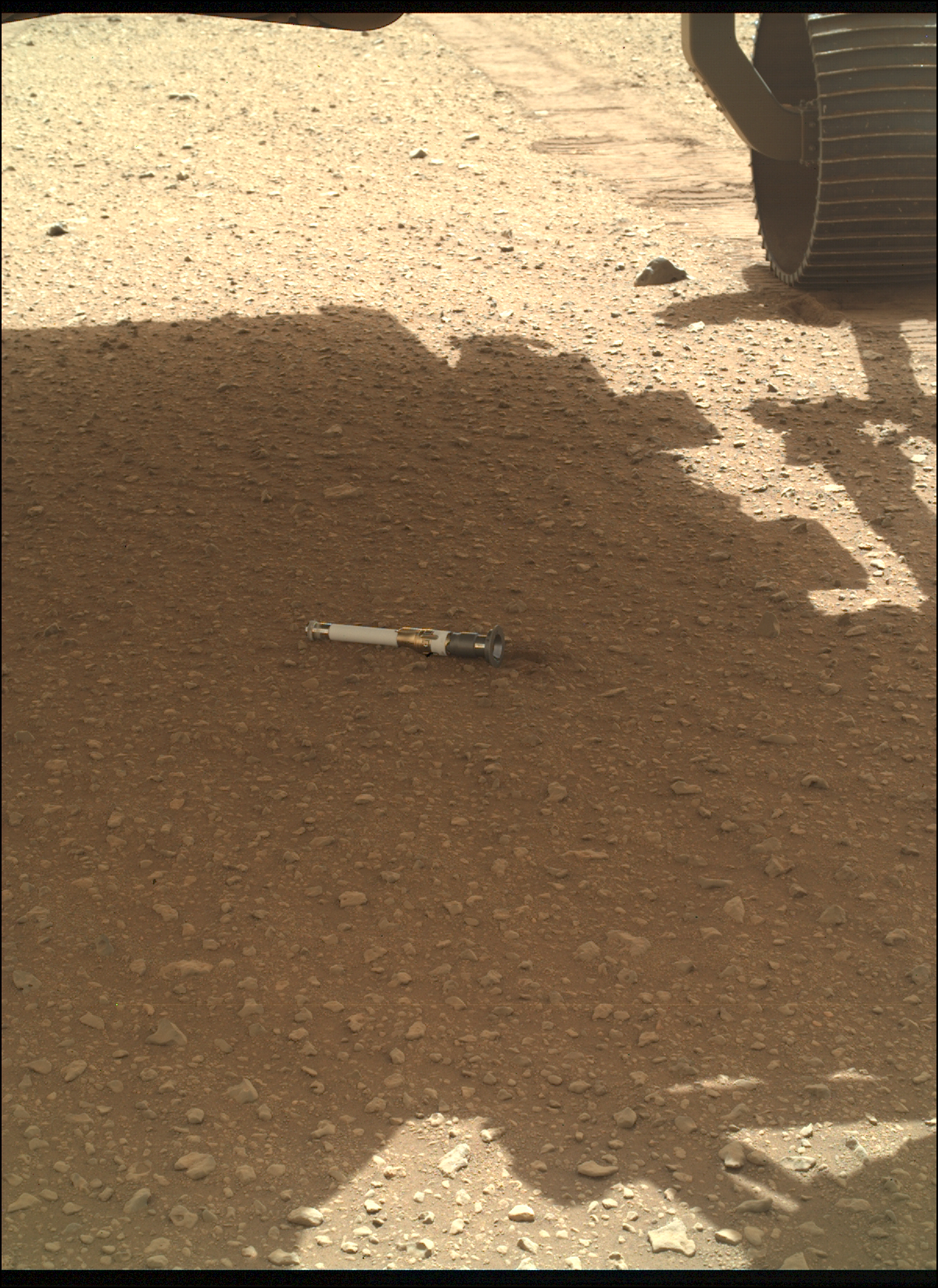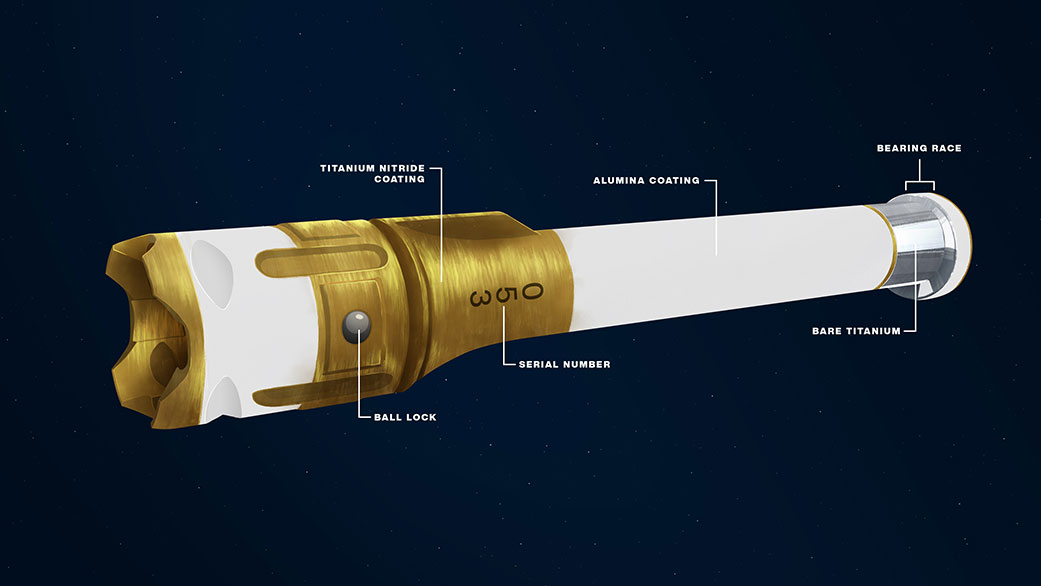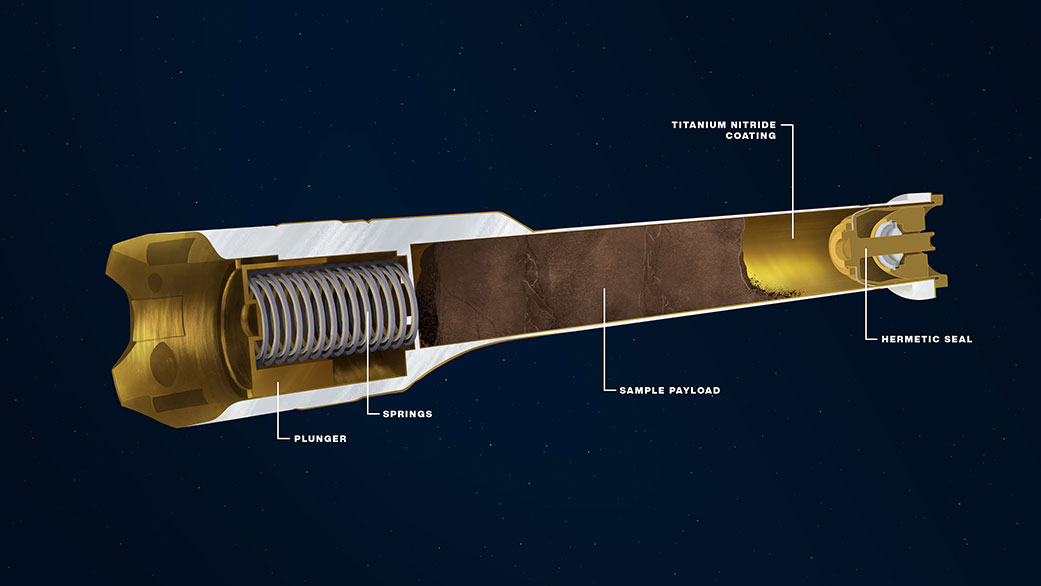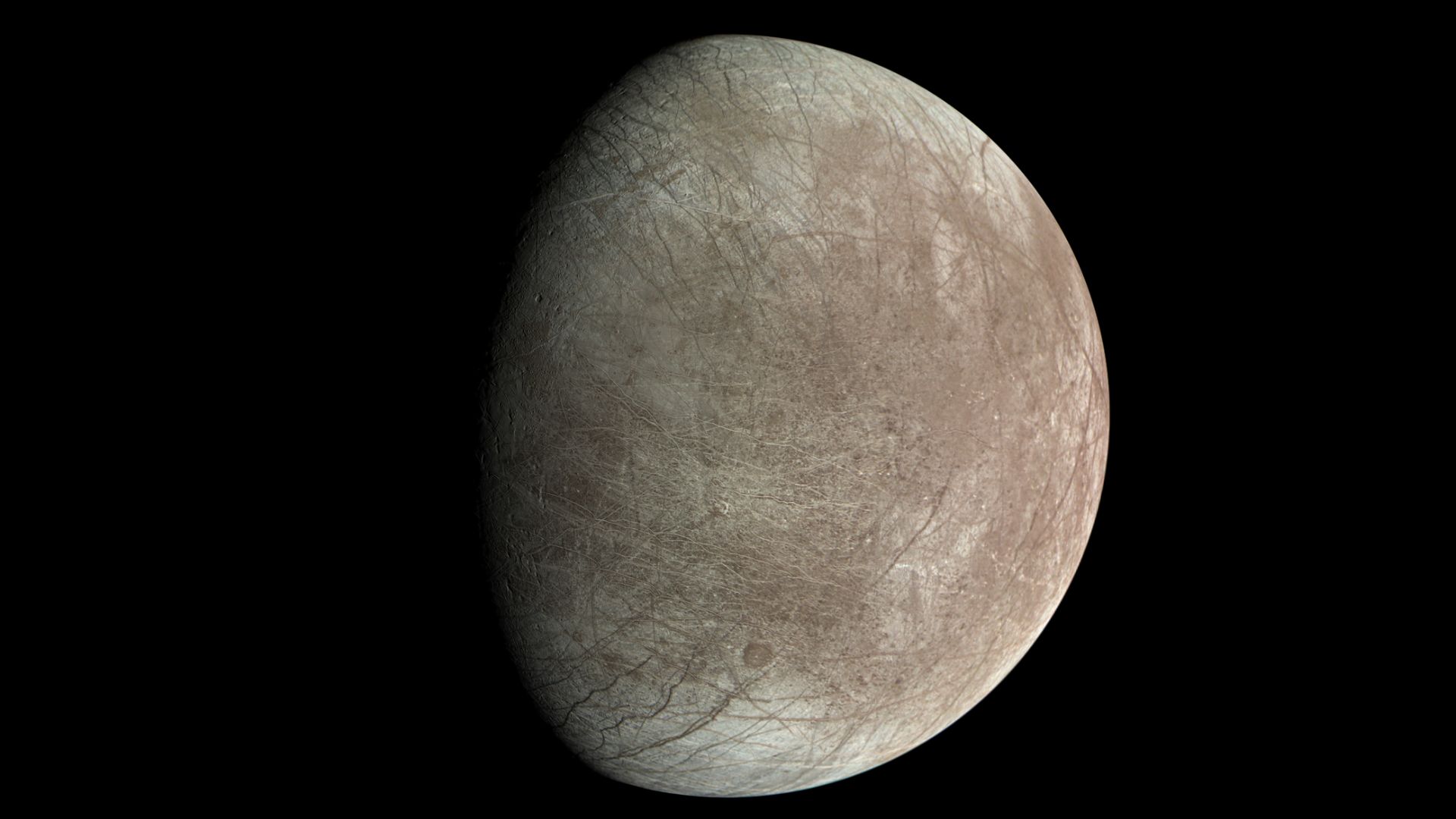NASA's Mars Perseverance rover sample tubes look like Star Wars lightsabers
'As director of NASA JPL, I'm pretty sure the Force is with me, right?'
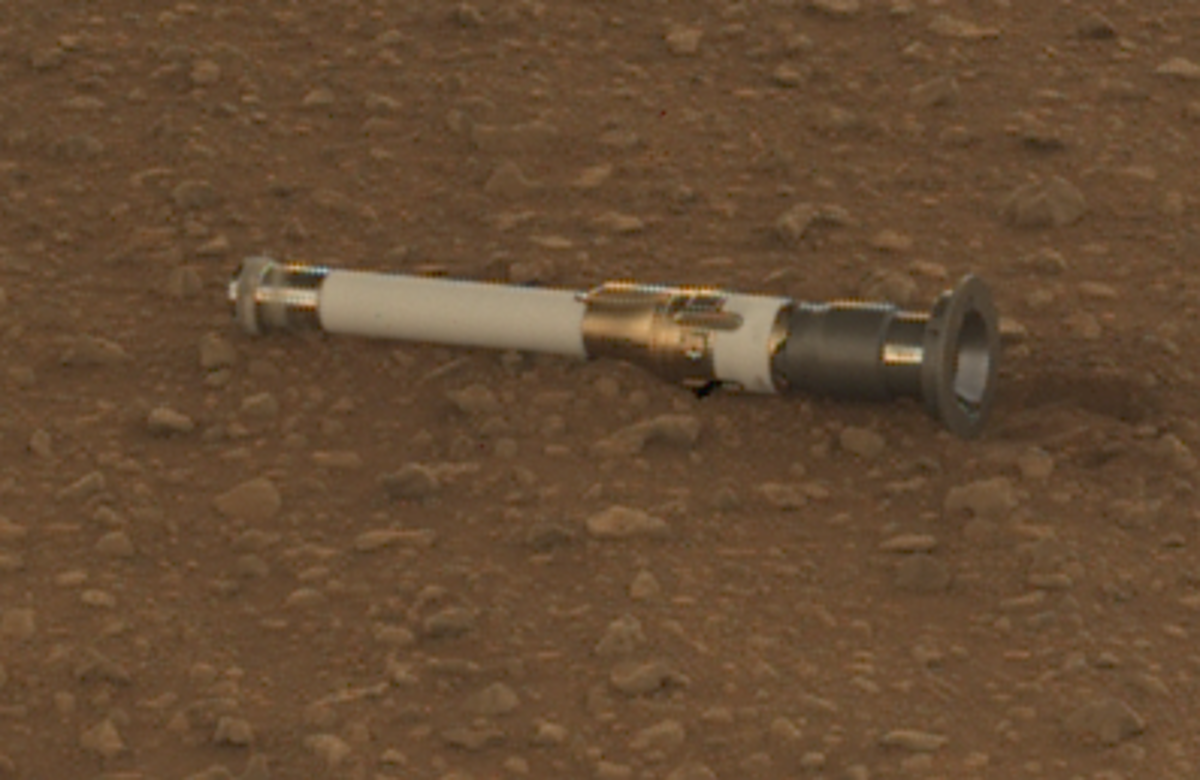
The director of NASA's Jet Propulsion Laboratory wants to be a Jedi.
Laurie Leshlin, peering at footage of a lightsaber-shaped sample tube dropped yesterday on Mars (Dec. 21) by NASA's Perseverance mission, joked on Twitter that there must be a faster way of shipping home the package, "Star Wars"-style.
"I've been holding out my hand to my computer screen to see if it will be transported from Mars, since as director of I'm pretty sure the Force is with me, right?" Leshlin tweeted late Thursday.
It appears that footage from the rover shows the package has not yet budged, but Leshlin remained optimistic. "No joy so far, but I'll keep trying," she added.
The Perseverance mission has a mandate to help with the larger search for life on Mars, through picking up interesting rocks in an ancient river delta. The plan is to ship these tubes back to Earth in the 2030s, where laboratories can get their hands on the samples to look for the signatures of life. But why a lightsaber shape?
Related: 12 amazing photos from the Perseverance rover's 1st year on Mars
To be fair, JPL is not far from the heart of Los Angeles where many a "Star Wars" film has been produced. At least one Perseverance mission team member — systems engineer Keri Bean — has been known to cosplay as "Star Wars" characters alongside a custom R2-D2 robot for charity and fun, so the Force between JPL, Mars and "Star Wars" is indeed strong. That said, the Perseverance tube design is informed more by engineering than science fiction.
Breaking space news, the latest updates on rocket launches, skywatching events and more!
Certainly we can point to similarities. The Perseverance sample tube is made of titanium, a metal, which sounds akin to how Luke Skywalker described a lightsaber's design in Star Wars #4, a canon comic book. Wookieepedia, a "Star Wars" fan site, says lightsabers more generally include fictional exotic alloys, gems or substances like Haysian smelt, pastillion ore, or black onk. Even Cartusion whale bone has been used, as lightsabers are meant to be adaptable to the engineer's preferences, available materials and ideologies, the fan site says.
Unlike the lightsaber's use as a weapon, however, the design of the Perseverance sample tube was driven by the complications of storing the tube on the surface of Mars for a few years before shipping it in a spacecraft relay back to Earth. The tubes "must be lightweight and hardy enough to survive the demands of the round trip, and so clean that future scientists will be confident that what they're analyzing is 100 percent Mars," JPL wrote in a December 2020 description of the sampling process.
Related: Mars sample return mission adds 2 helicopters, scraps 'fetch' rover
The shiny appearance of the Perseverance tube comes from titanium nitride (the gold part of the tube), bare titanium (the silver part on the smaller end) and a white exterior alumina coating to combat solar heating; otherwise, the sun may alter the sample chemical composition by accident as the sample lies exposed to solar radiation on the surface of Mars, JPL officials wrote.
The tapered end (the tip of the "blade", if we compare the tube to a lightsaber) is a hermetic seal to protect the sample from Martian atmosphere. The "hilt" is a casing for the plunger and springs to hold the sample in place inside the tube.
The Martian tubes are also much smaller than the lightsabers you see on screen. The 43 titanium sample cases Perseverance carries with it are roughly test-tubed sized, and the sample dropped on Mars yesterday is about the shape of a piece of chalk. While empty, each sample tube is less than 2 ounces (57 grams) in mass.
The tubes and "Star Wars" lightsabers aren't exactly alike, but we can agree they look just about the same — and that the environment that Perseverance is currently roaming looks pretty similar to Tatooine, the "Star Wars" sand dune-filled planet hosting several generations of Skywalker. Let's just hope Perseverance doesn't run into Tusken Raiders as it continues its search for microbial life.
Elizabeth Howell is the co-author of "Why Am I Taller?" (ECW Press, 2022; with Canadian astronaut Dave Williams), a book about space medicine. Follow her on Twitter @howellspace. Follow us on Twitter @Spacedotcom or Facebook.

Elizabeth Howell (she/her), Ph.D., was a staff writer in the spaceflight channel between 2022 and 2024 specializing in Canadian space news. She was contributing writer for Space.com for 10 years from 2012 to 2024. Elizabeth's reporting includes multiple exclusives with the White House, leading world coverage about a lost-and-found space tomato on the International Space Station, witnessing five human spaceflight launches on two continents, flying parabolic, working inside a spacesuit, and participating in a simulated Mars mission. Her latest book, "Why Am I Taller?" (ECW Press, 2022) is co-written with astronaut Dave Williams.
